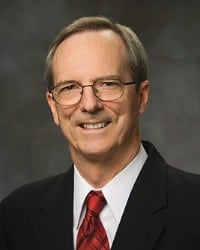
“The Savior was no ivory-tower observer, no behind-the-lines captain… The Savior was a participant, a player, who not only understood our plight intellectually, but who felt our wounds because they became his wounds.”
| The Infinite Atonement

“The Savior was no ivory-tower observer, no behind-the-lines captain… The Savior was a participant, a player, who not only understood our plight intellectually, but who felt our wounds because they became his wounds.”
| The Infinite Atonement

“There was something in the Savior’s descent that made possible man’s ascent.”
| The Infinite Atonement

“But how does the Atonement motivate, invite, and draw all men unto the Savior? What causes this gravitational pull– this spiritual tug? There is a certain compelling power that flows from righteous suffering– not indiscriminate suffering, not needless suffering, but righteous, voluntary suffering for another. Such suffering for another is the highest and purest form of motivation we can offer to those we love. Contemplate that for a moment: How does one change the attitude or the course of conduct of a loved one whose every step seems bent on destruction? If example fails to influence, words of kindness go unheeded, and the powers of logic are dismissed as chaff before the wind, then where does one turn…In the words of the missionary evangelist, E. Stanley Jones, suffering has “an intense moral appeal.” Jones once asked Mahatma Gandhi as he sat on a cot in an open courtyard of Yervavda jail, “‘Isn’t your fasting a species of coercion?’ ‘Yes,’ he said very slowly, ‘the same kind of coercion which Jesus exercises upon you from the cross.'” As Jones reflected upon that sobering rejoinder, he said: “I was silent. It was so obviously true that I am silent again every time I think of it. He was profoundly right. The years have clarified it. And I now see it for what it is: a very morally potent and redemptive power if used rightly. But it has to be used rightly.”
| The Infinite Atonement

“We become like those things we habitually love and admire. And thus, as we study Christ’s life and live his teachings, we become more like him.”
| The Infinite Atonement

“Elder Neal A. Maxwell suggests that the prime reason the Savior personally acts as the gatekeeper of the celestial kingdom is not to exclude people, but to personally welcome and embrace those who have made it back home.”
| The Infinite Atonement

“The Atonement of Jesus Christ outweighs, surpasses, and transcends every other mortal event, every new discovery, and every acquisition of knowledge, for without the Atonement all else in life is meaningless.”
| The Infinite Atonement

Some are willing to set aside the precious gospel truths restored by Joseph Smith because they get diverted on some historical issue or some scientific hypothesis not central to their exaltation, and in so doing they trade their spiritual birthright for a mess of pottage. They exchange the absolute certainty of the Restoration for a doubt, and in that process they fall into the trap of losing faith in the many things they do know because of a few things they do not know.
| “Joseph Smith: Prophet of the Restoration,” Ensign, November 2009, p. 37

“Jacob placed no qualifiers when he said the Savior would suffer ‘the pains of every living creature, both men, women and children, who belong to the family of .’ These were pains both related and unrelated to sin or transgression. In other words, the Savior voluntarily took upon himself not only the cumulative burden of sin and transgression, but also the cumulative burden of all depression, all loneliness, all sorrow, all mental, emotional, and physical hurt, and all weakness of every kind that afflicts mankind.”
| The Infinite Atonement

“President Gordon B. Hinckley spoke of [the Atonement’s] relationship to other events in world history: “When all is said and done, when all of history is examined, when the deepest depths of the human mind have been explored, there is nothing so wonderful, so majestic, so tremendous as this act of grace.”
| The Infinite Atonement

“The Atonement was designed to do more than restore us to the ‘starting line’—more than just wipe the slate clean. [Its] crowning purpose [is] to endow us with power so that we might overcome each of our weaknesses and acquire the divine traits that would make us like God.”
| “How Can I Lead a More Saintly Life?” p. 89